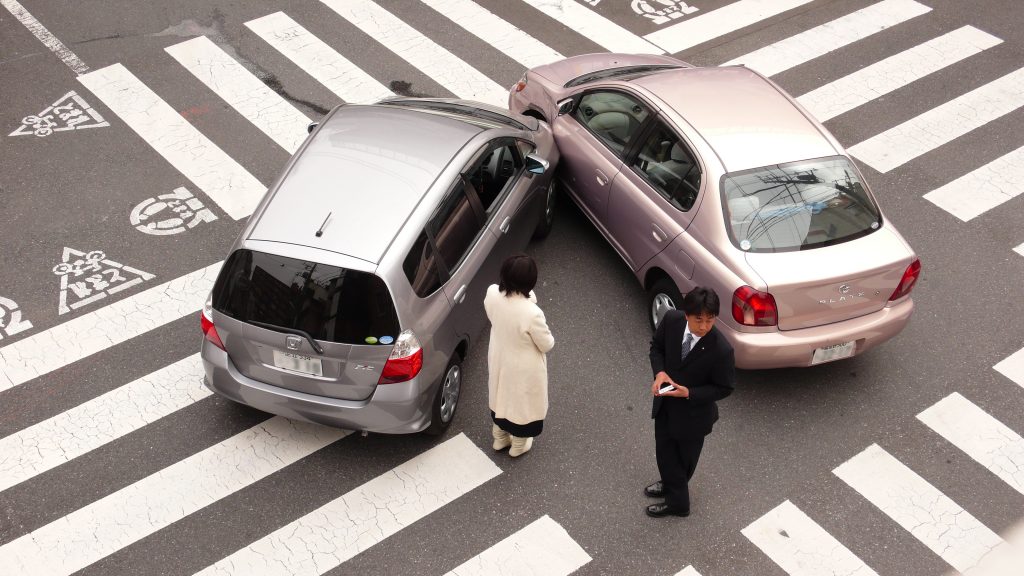Totaled vs. Repairable Vehicles: Everything You Need to Know
The last thing any driver wants is to be involved in a car accident, but the unfortunate truth of driving is that you can’t control the actions of other drivers. In some cases, an accident will occur regardless of what you do to avoid it. Even small car accidents can cause large amounts of damage to a vehicle and some insurance companies may feel as if paying to repair the car isn’t worth it. To that end, learn everything there is to know about the difference between a repairable and totaled vehicle so that you can expect what comes next.
What Does it Mean When a Vehicle is Totaled?
Simply put, a car is deemed as totaled when the repair costs exceed the book value of that car, as determined by an insurance company. When you are in a car accident where your vehicle was damaged, your insurance company will evaluate the damage that occurred and estimate how much repairs would cost to return the vehicle to a safe and operable condition. The insurance company will also determine what the estimated book value of your vehicle was, just prior to the accident.
When the estimated repair costs exceed the estimated book value for your vehicle, it is considered to be totaled. In this situation, the insurance company would reimburse you for the entire book value of your vehicle instead of assisting with repairs. Some states and insurance companies have specific thresholds for when a vehicle is totaled, such as repair costs being at least 75% of the estimated book value.
How is the Cutoff for a Totaled Vehicle Determined?
When your vehicle is determined to be totaled following an accident, you will naturally have questions regarding how the cutoff for your vehicle was determined. There are two main calculations that the insurance company will run: repair estimates and book value. For estimating the repair costs associated with damages resulting from a crash, an insurance company will use an adjustor. This person examines the damage and writes an estimate based on the average cost of parts and the labor rate for your area.
For the second part of the equation, most insurance companies will use a third party to determine the actual cash value of your vehicle. This value is often just the starting worth of your vehicle minus all depreciation, which takes into account factors such as age, wear and tear, mileage, estimated resale value, and more.
Common Types of Insurance That Offer Total Loss Protection
Getting into a bad accident where your vehicle is extensively damaged, only to discover that your insurance coverage is not sufficient for total loss protection is troubling. There are three primary forms of auto insurance that typically provide total loss protection to be aware of:
1. Property Damage Liability Insurance
This form of insurance kicks in when you are involved in an accident and the other driver is deemed to be at fault. Your own insurance company may pay for damages while fault is being determined, a process which can take some time, but the other party’s property damage liability insurance will kick in to offer you the actual cash value of your vehicle.
2. Comprehensive Insurance
In some cases, the event that totaled your vehicle may not be another driver, but a natural event such as a tree falling on your vehicle. In this situation, comprehensive insurance would cover the cost of your vehicle assuming it was damaged enough to be deemed totaled. Comprehensive insurance isn’t always required on a state-by-state basis, but it can offer a large amount of protection for those who choose to invest in it.
3. Collision Coverage Insurance
This is the most basic form of insurance and offers coverage against hitting an object on the road, such as a fence, or even another vehicle. It also covers single car accidents such as a rollover. This form of insurance covers damages to your vehicle alone, which is why it will often cover total loss expenses in the event of a severe enough accident.
The Bottom Line
Oftentimes, people develop an emotional attachment to their vehicles which can make having their vehicle declared a total loss heartbreaking. However, the total loss payment you receive from the insurance company may help to soften the blow. If you don’t believe your car’s book value was determined accurately, don’t hesitate to request a breakdown of how that value was decided upon so that you can be sure you’re treated fairly.




